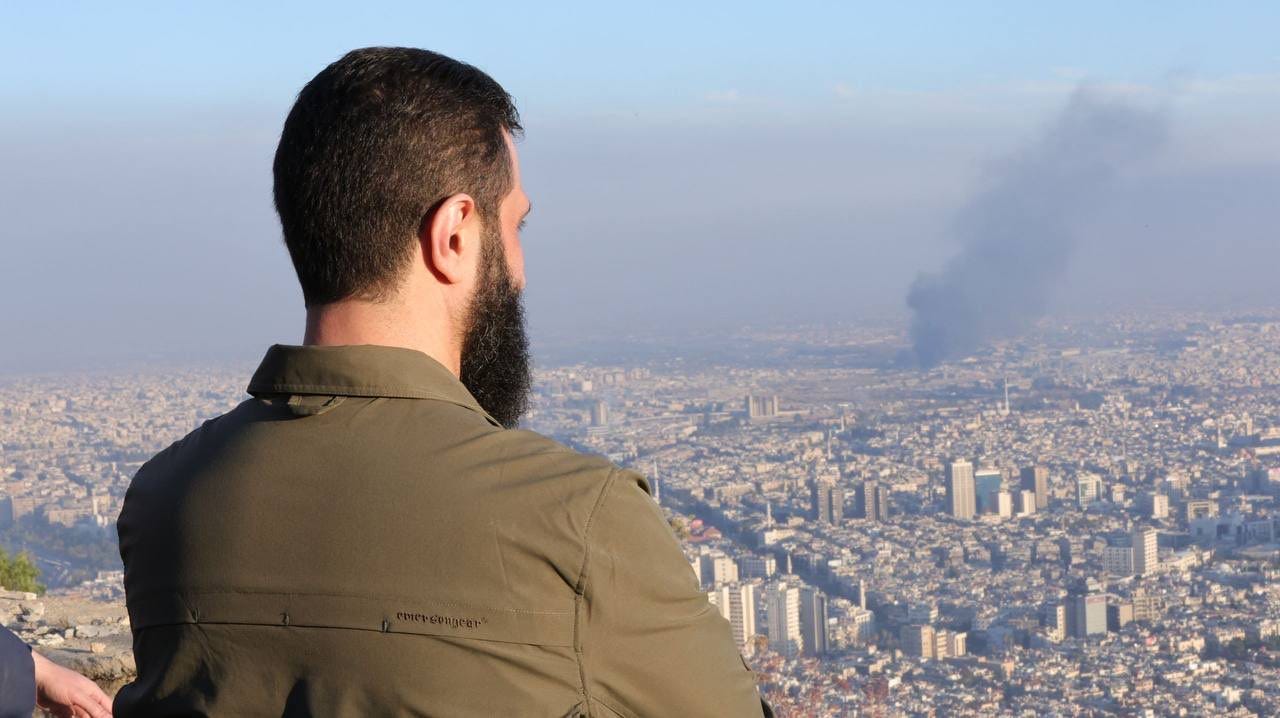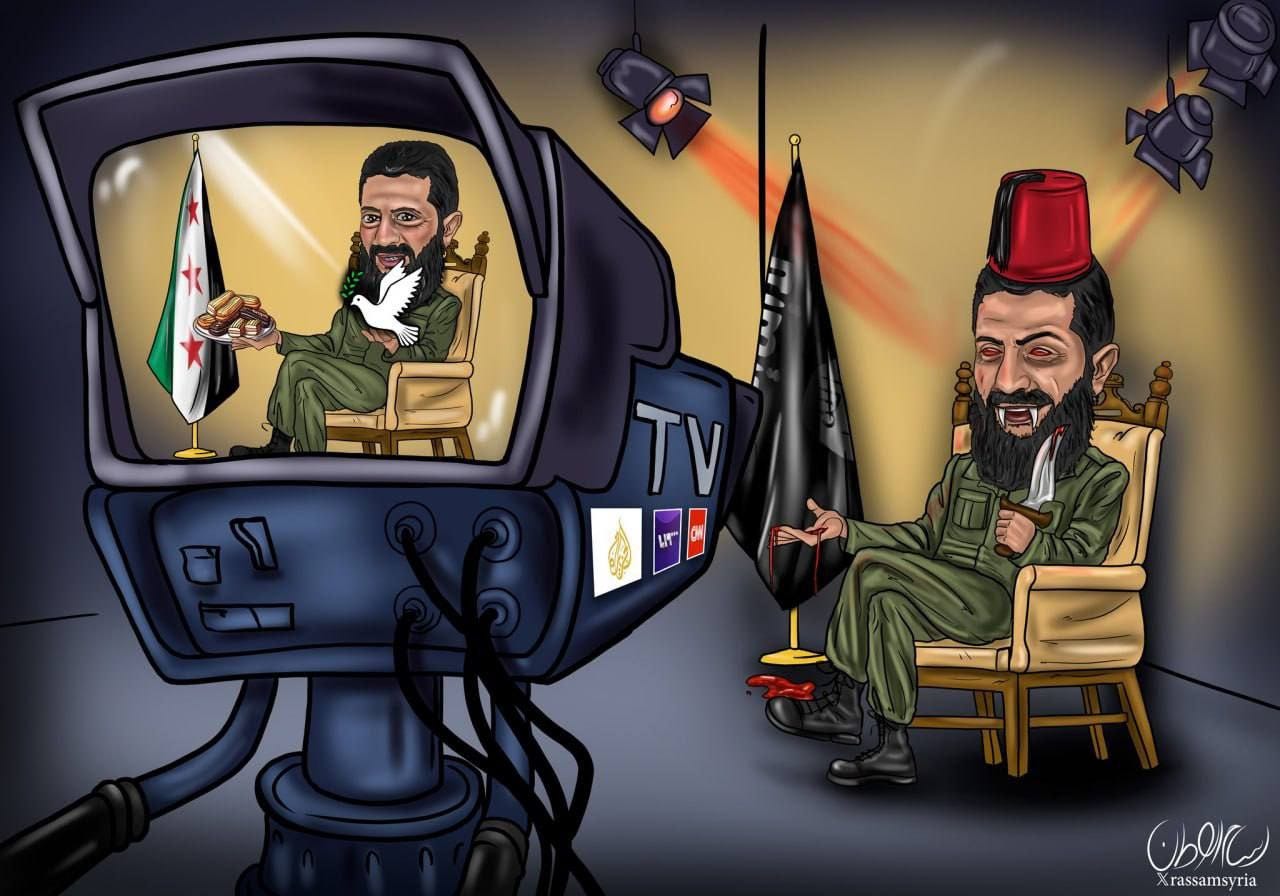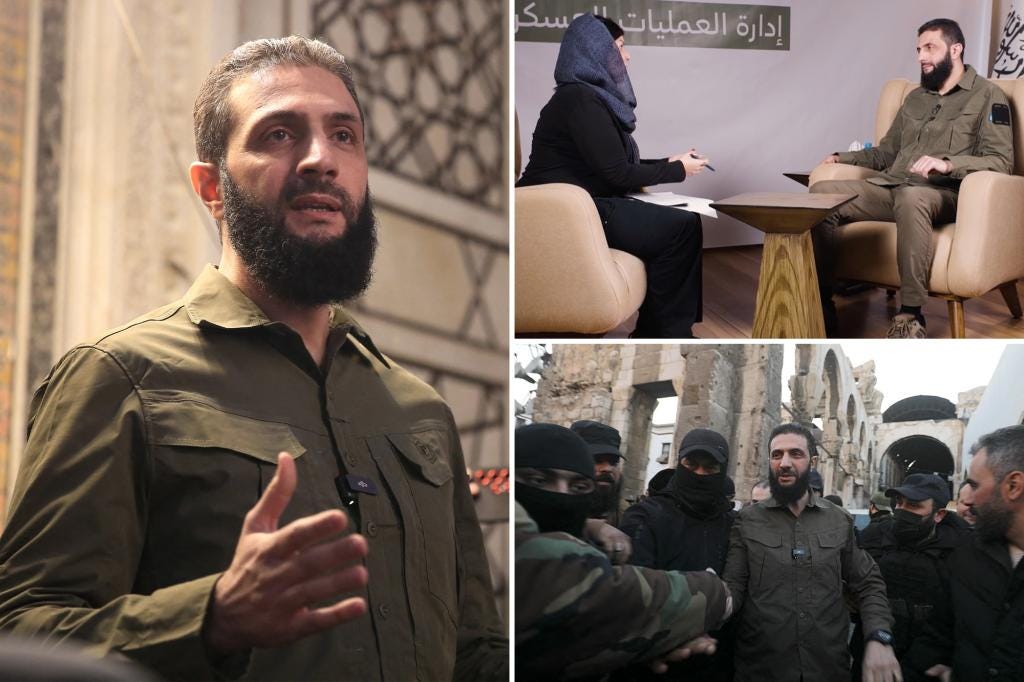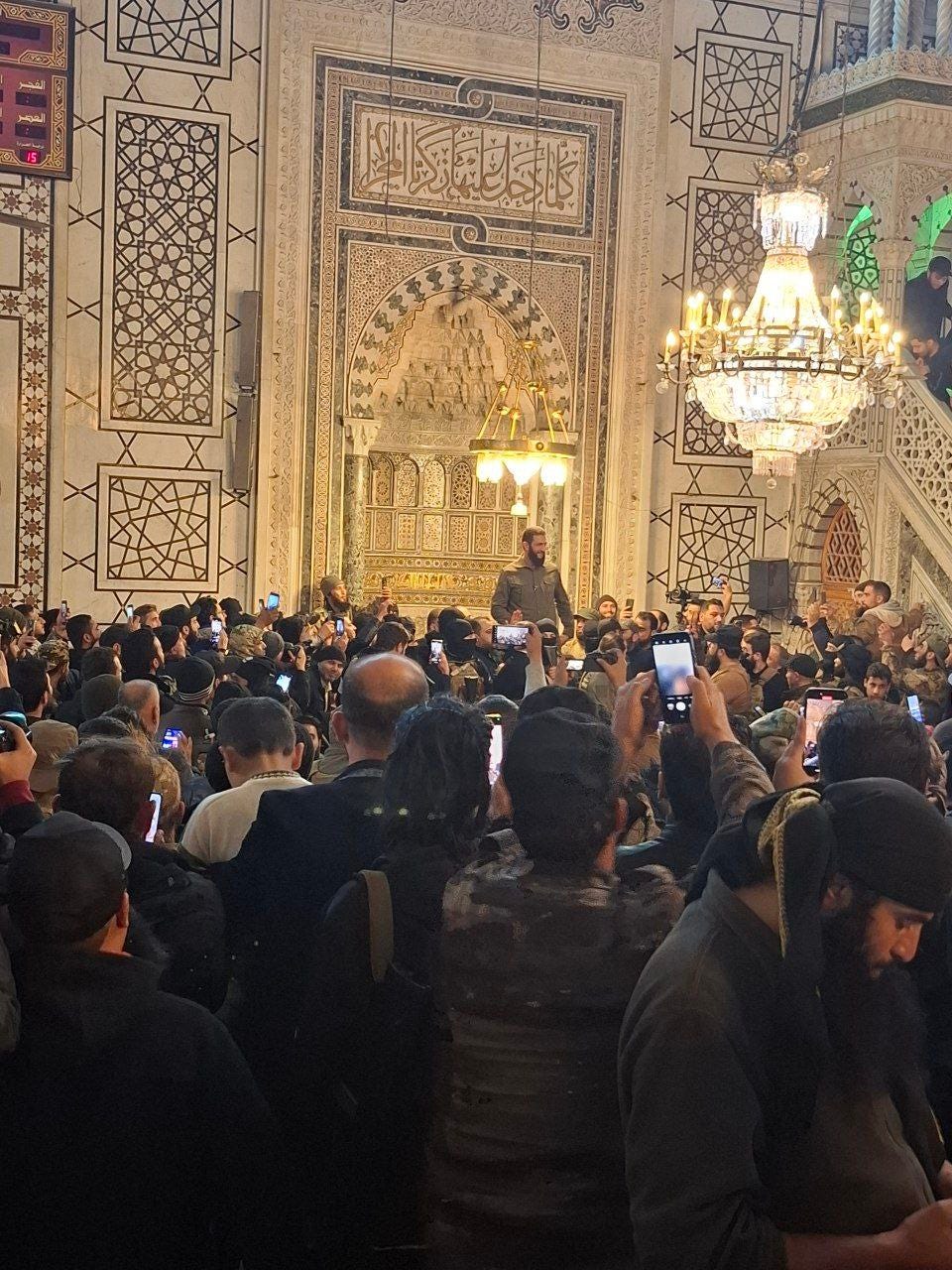🎭 The Transformation of Abu Mohammed al-Jolani:
From Al-Qaeda Militant to Aspiring Statesman
You can't make war in the Middle East without Egypt, and you can't make peace without Syria." - Henry A. Kissinger.
In the complex theater of Middle Eastern politics, few transformations have been as strategically calculated as that of Abu Mohammed al-Jolani. The recent capture of Aleppo—Syria's commercial capital—by his Hayat Tahrir al-Sham (HTS) forces marks not just a military victory, but the culmination of a decade-long metamorphosis from shadowy jihadist to aspiring regional power broker.
The story of Ahmed al-Sharaa (Jolani's real name) reads like a case study in the radicalization of educated, middle-class youth in the post-9/11 era. Born into Damascus's privileged Mazzeh district in 1982, his journey from comfortable urbanite to militant leader illustrates the complex social dynamics that have fueled Syria's civil war.
Jon Stewart introduces the new and improved Abu Mohammad al-Jolani, who is definitely over his Al Qaeda phase
What makes Jolani's trajectory particularly noteworthy is its departure from the typical narrative of Islamic extremism. Unlike many of his contemporaries who emerged from poverty or marginalization, Jolani's background—marked by educational achievement and social privilege—suggests a calculated ideological choice rather than economic desperation.
Jolani's transformation from Al-Qaeda affiliate to self-styled moderate reveals a sophisticated understanding of regional and international politics. His decision to break ties with Al-Qaeda in 2016 wasn't merely a tactical shift—it represented a fundamental reimagining of how Islamist movements might achieve political legitimacy in the modern Middle East.
The shedding of jihadist symbolism—trading the traditional turban for military fatigues—reflects more than a cosmetic change. It signals a studied attempt to bridge the gap between Islamic governance and contemporary statecraft, a challenge that has bedeviled religious movements across the region.
The Aleppo Gambit
HTS's recent capture of Aleppo represents more than a military victory—it's a carefully orchestrated political statement. Jolani's immediate outreach to the city's Christian minority and his public calls for maintaining security demonstrate an understanding that territorial control in modern Syria requires more than military dominance; it demands a degree of social legitimacy that traditional jihadist movements have typically ignored.
In Idlib province, HTS has attempted to build what amounts to a proto-state, complete with civilian governance structures. This experiment in administration represents a significant departure from the purely militant approach of groups like ISIS. While human rights organizations have documented serious abuses, the very attempt at institutional building marks a distinctive approach to Islamist governance.
The international community faces a complex challenge in responding to Jolani's evolution. Western governments, which still classify HTS as a terrorist organization, must navigate between their established policies and the reality of HTS's growing territorial control. The situation echoes historical precedents where ideological movements have transformed into governing entities—though the outcome remains uncertain.
Jolani's current positioning embodies a calculated ambiguity. While publicly embracing more moderate positions and governance responsibilities, he maintains the military capability and ideological framework that enabled his rise to power. This dual identity—part statesman, part militant leader—reflects the complex reality of power politics in contemporary Syria.
The sincerity of Jolani's transformation remains a matter of debate among analysts. As Aron Lund of the Century International think tank notes, the moderation in rhetoric likely represents "good politics" rather than genuine ideological evolution. However, the very fact that Jolani recognizes the need for such moderation suggests a sophisticated understanding of modern political requirements.
Jolani's evolution raises broader questions about the future of Islamist movements in the Middle East. His attempt to bridge jihadist ideology with practical governance could serve as a template for other groups seeking to transition from militant opposition to political legitimacy.
The success or failure of this experiment in Aleppo and Idlib will likely influence the trajectory of similar movements across the region. If Jolani succeeds in establishing a functioning administration that provides basic services and security, it could reshape the understanding of how religious militant groups can evolve into governing entities.
This transformation must be viewed within the broader historical context of religious movements seeking political legitimacy. From the Muslim Brotherhood's attempts at democratic participation to Hamas's governance of Gaza, the challenge of transitioning from opposition to administration has often proved treacherous.

Jolani's journey from Al-Qaeda militant to aspiring statesman illustrates the complex interplay between ideology and pragmatism in modern conflict zones. While his current moderate posture may be more tactical than genuine, it demonstrates how the practical requirements of governance can reshape even the most hardline movements.
The ultimate test will lie not in rhetoric but in governance. As HTS attempts to administer newly captured territories, the world watches to see whether this latest experiment in militant transformation can succeed where others have failed. The stakes extend far beyond Syria's borders, potentially offering insights into how similar conflicts might eventually find resolution through the complex process of militant-to-statesman transformation.




